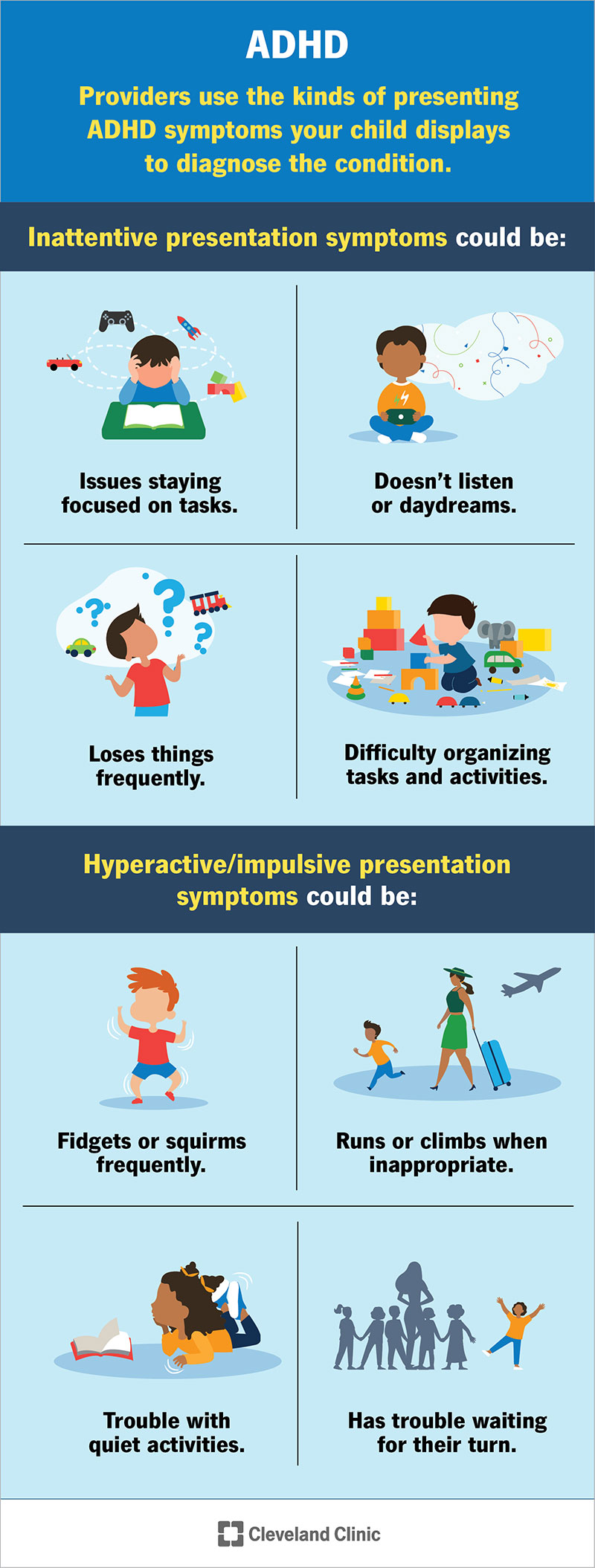Medication Management Programs for Optimized Treatment Plans
The Benefits of Customized ADHD Treatment Plans for Better Results
The application of personalized ADHD therapy plans has become an essential strategy in improving restorative outcomes for people affected by this condition. By recognizing the unique indications of ADHD in each person, these customized interventions promote higher engagement and motivation, inevitably causing a lot more reliable coping strategies. This customized strategy not just addresses scholastic and job-related obstacles however additionally cultivates enhanced social partnerships and overall lifestyle. The true degree of these benefits raises essential inquiries about the certain elements that add to long-lasting success and just how they can be maximized for diverse populaces.
Recognizing ADHD Variability
Although Attention-Deficit/Hyperactivity Problem (ADHD) is typically regarded as a singular problem, its manifestations can vary considerably amongst people. This irregularity is influenced by an array of aspects, including age, gender, coexisting conditions, and ecological contexts. For instance, children with ADHD may display hyperactive habits, while grownups may primarily battle with focus deficiencies. Sex differences likewise play a duty, as males are much more regularly identified with ADHD and typically show a lot more obvious signs and symptoms, whereas ladies may provide with much less noticeable inattentiveness.
In addition, individuals with ADHD may experience a spectrum of emotional and behavior difficulties, such as anxiety or opposite defiance, that can complicate medical diagnosis and therapy. The communication of these elements can cause diverse experiences of ADHD, requiring a nuanced understanding of the problem. It is also worth noting that ADHD can provide in a different way throughout various social contexts, influencing exactly how signs and symptoms are acknowledged and addressed. This understanding underscores the importance of recognizing ADHD as a multifaceted condition, which asks for personalized techniques to therapy that consider the one-of-a-kind demands and experiences of each person.
Key Elements of Personalization
Personalized ADHD therapy strategies are based in several essential parts that make certain reliable management of the disorder. First, a detailed assessment is essential, involving standard score ranges, meetings, and behavior monitorings. This thorough assessment permits clinicians to understand the person's special symptoms, toughness, and challenges.
2nd, the involvement of multiple stakeholders, including moms and dads, teachers, and the person, adds to a holistic view of the person's needs. Cooperation fosters a helpful setting that can adjust to the person's context and lifestyle.
Third, therapy strategies should be versatile and versatile, enabling modifications based upon ongoing feedback and the individual's advancing demands. This versatility enables the integration of different therapeutic strategies, such as behavioral treatments, psychoeducation, and medication monitoring.
In addition, cultural and contextual variables have to be taken into consideration. Identifying the individual's background, worths, and choices guarantees that the treatment matters and respectful.
Last but not least, normal follow-ups and evaluations are important to check progress and make essential modifications. By concentrating on these key elements, personalized ADHD therapy plans can considerably enhance the performance of interventions, bring about improved outcomes for people with ADHD.
Boosted Involvement and Inspiration
To effectively promote improved involvement and inspiration in individuals with ADHD, it is important to integrate approaches that resonate with their rate of interests and staminas. Personalized therapy plans that line up with an individual's passions can cause increased involvement in restorative activities, cultivating a feeling of ownership and interest for the process.
Using interactive and imaginative techniques can also significantly enhance motivation. Integrating gamification elements or real-world applications of abilities can make jobs a lot more enticing and appropriate. This not just captures focus however likewise enhances discovering with delightful experiences.
Furthermore, establishing possible and meaningful goals tailored to the person can strengthen inspiration. When people see their progress in the direction of personally substantial goals, they are most likely to stay engaged. Regular comments and acknowledgment of achievements can better receive inspiration, creating a positive comments loophole that urges continued effort.
Lastly, cultivating a helpful environment where people really feel comprehended and valued can substantially influence their untreated depression involvement levels. When treatment plans are created collaboratively, incorporating input from the individual, they are a lot more likely to feel bought their journey, ultimately resulting in enhanced outcomes in managing ADHD.
Improved Coping Techniques
Establishing enhanced coping approaches is crucial for people with ADHD, as it equips them with reliable devices to browse everyday challenges. A personalized therapy strategy permits for the identification of details coping systems customized like it to the person's one-of-a-kind requirements and conditions - ADHD treatment. Strategies such as mindfulness, time management skills, and organizational strategies can be incorporated right into everyday routines, cultivating a feeling of control and minimizing anxiety
Mindfulness methods, including reflection and deep-breathing workouts, aid people with ADHD concentrate their focus and regulate their feelings. Time monitoring methods, such as utilizing timers or damaging jobs into smaller sized, convenient actions, can mitigate sensations of bewilder. Furthermore, organizational devices like coordinators and checklists can improve efficiency and liability.
Lasting Positive Outcomes
Carrying out personalized ADHD therapy plans can bring about significant lasting favorable outcomes for people. These customized approaches, which take into consideration special signs and symptoms, preferences, and life circumstances, facilitate a lot more reliable monitoring of ADHD symptoms gradually. By concentrating on the details needs of the person, these strategies improve adherence to therapy methods and foster better interaction in healing activities.

Additionally, individualized therapy strategies can significantly lower the risk of comorbid problems, such as anxiousness and clinical depression, which are typically associated with ADHD. Early intervention and constant support help people develop durability and coping techniques, read the full info here advertising overall psychological health and wellness.
Inevitably, the lasting positive outcomes of individualized ADHD treatment plans not only boost the high quality of life for people however additionally add to their overall well-being and success in numerous life domains. This alternative approach highlights the importance of personalized treatment in handling ADHD successfully.
Verdict
